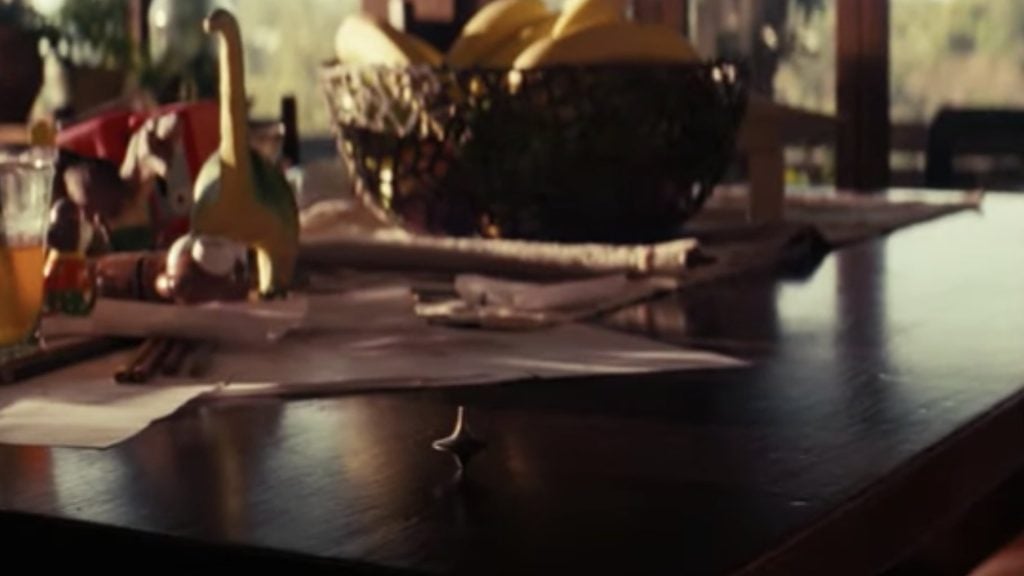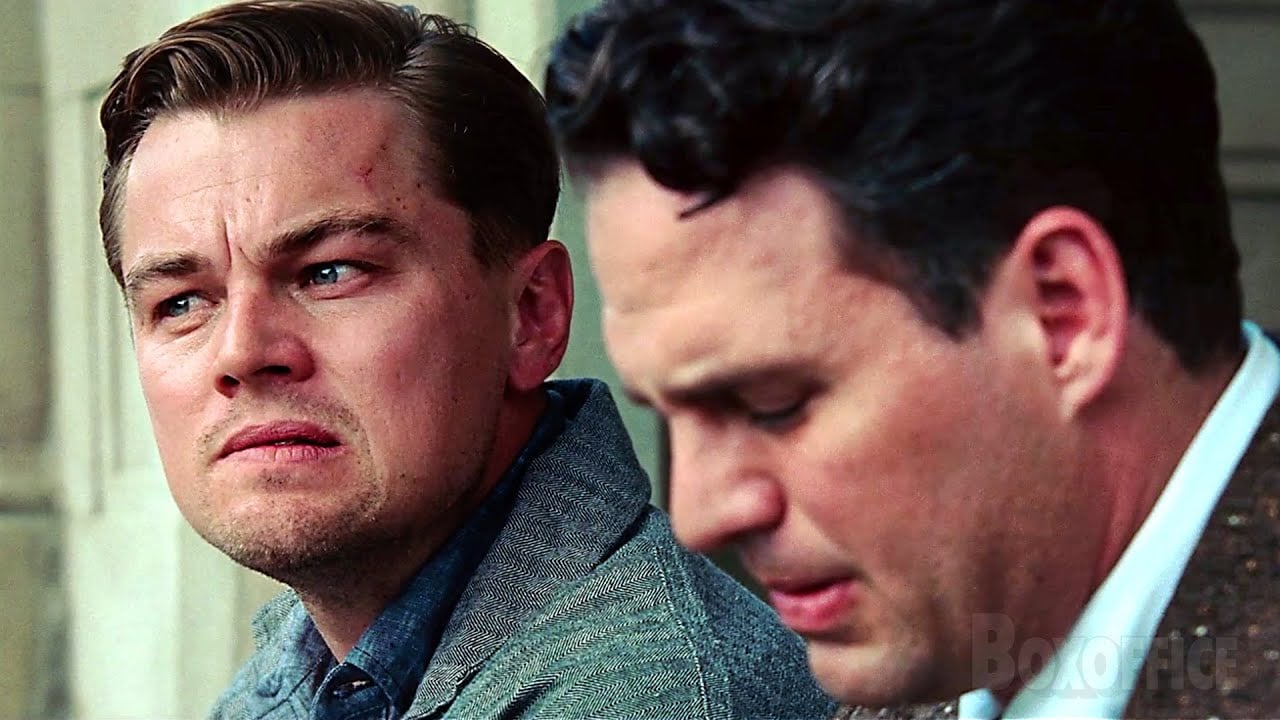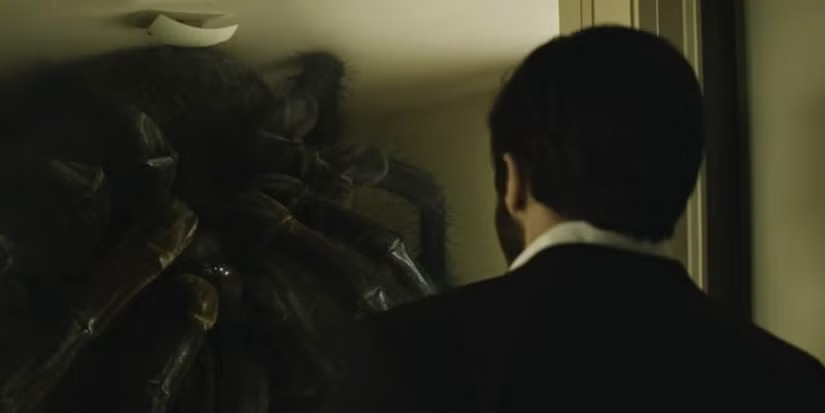A perfect ending can wrap up a story neatly, but the most memorable ones often don’t — they linger, tease, and make audiences argue for years. These ten films feature some of cinema’s most gripping cliffhanger endings, leaving us to decide what really happened after the screen fades to black.
1. Inception (2010) — The spinning top heard ’round the world

Why it’s unforgettable: Christopher Nolan’s Inception masterfully weaves dream layers within dream layers — but it’s that final shot of a spinning top that cemented its place in pop culture. Is Cobb still dreaming or finally home? The ambiguity invites endless rewatching and analysis.
Why it’s a must-see: The film redefined mainstream sci-fi storytelling, proving audiences would follow complex narratives if emotionally grounded. Its cliffhanger ending epitomizes Nolan’s knack for sparking debate while rewarding close attention.
2. The Thing (1982) — Paranoia frozen in time
Why it’s unforgettable: John Carpenter’s cult classic ends with two survivors staring each other down in the Antarctic cold, unsure who’s human and who’s the alien. The ambiguity turns survival into suspicion.
Why it’s a must-see: The tension never deflates. Every frame becomes a question: can anyone truly know another person? Carpenter’s refusal to offer closure keeps the film terrifying decades later.
3. Se7en (1995) — The box that changed crime thrillers

Why it’s unforgettable: The shocking finale, often discussed but rarely spoiled in full, ends with a gut punch that redefines the meaning of justice. The film stops just shy of showing everything, leaving emotional fallout instead of resolution.
Why it’s a must-see: David Fincher’s bleak vision and the chilling restraint of its ending created a new standard for psychological crime dramas. It’s not just a twist — it’s an existential cliffhanger about morality and punishment.
4. The Italian Job (1969) — Literally hanging off a cliff
Why it’s unforgettable: The title’s “job” ends with a literal cliffhanger — a bus teetering on the edge of a mountain, gold sliding dangerously toward the abyss. Michael Caine’s final line? “Hang on a minute, lads…” Then — fade out.
Why it’s a must-see: It’s one of cinema’s most playful finales. The ending’s mix of humor and suspense perfectly captures 1960s caper cinema while inviting fans to invent their own continuation for decades.
5. Gone Girl (2014) — Marriage as manipulation
Why it’s unforgettable: After its shocking reveals, Gone Girl doesn’t end with justice or reconciliation — but with a chilling return to “normal.” Amy and Nick’s toxic relationship remains intact, with both aware of their shared imprisonment.
Why it’s a must-see: It’s a cliffhanger without an obvious cliff — the tension is psychological. David Fincher again crafts an ending that forces audiences to question morality, truth, and the façade of domestic happiness.
6. Shutter Island (2010) — Sanity or surrender?

Why it’s unforgettable: Leonardo DiCaprio’s final line — “Which would be worse: to live as a monster or die as a good man?” — reframes the entire movie in one haunting sentence. Did he truly regain sanity or choose denial?
Why it’s a must-see: The movie blends noir with psychological horror, and the ending adds emotional complexity that makes second viewings even richer. It’s a masterclass in unreliable perspective.
7. Prisoners (2013) — Hope buried beneath the surface
Why it’s unforgettable: Denis Villeneuve ends with a faint whistle — maybe hope, maybe hallucination. The ambiguity is maddening yet poetic, suggesting salvation could be seconds or miles away.
Why it’s a must-see: It’s rare for a procedural to balance grim realism with emotional grace. Prisoners leaves audiences both frustrated and moved — exactly what a great cliffhanger should do.
8. The Graduate (1967) — Happily ever after?
Why it’s unforgettable: Benjamin and Elaine’s elopement ends with nervous laughter that slowly fades into silence. The wide-eyed realization on their faces says it all: what now?
Why it’s a must-see: It’s a generation-defining ending — the perfect example of a cliffhanger that’s not about plot, but emotion. The future is uncertain, and that’s the point.
9. The Others (2001) — Ghostly revelation, lingering questions
Why it’s unforgettable: Even after its major twist, The Others ends on an eerie note of stillness. The spirits remain, the questions about the afterlife remain. It’s not closure — it’s continuation.
Why it’s a must-see: Alejandro Amenábar’s film is gothic mystery at its finest, and its restraint gives it timeless staying power. It’s a reminder that horror can end quietly and still chill.
10. Enemy (2013) — The spider that shocked everyone
Why it’s unforgettable: Villeneuve strikes again, closing his identity thriller with a single, surreal image that sends shivers down the spine. No explanation, just an instinctive reaction — confusion and awe.
Why it’s a must-see: Enemy thrives on interpretation. Its final moment transforms a psychological puzzle into existential horror. If you like films that challenge logic, this one rewards endless debate.
Why Cliffhanger Endings Endure
Cliffhanger endings endure because they mirror life: rarely do we get tidy conclusions. They make us part of the story — debating, analyzing, even projecting ourselves into what comes next. When done well, a cliffhanger transforms a film from entertainment into conversation.

DC Fanboy! Superman is the greatest comic book character of all time. Favorite movies are Man of Steel, Goonies, Back To the Future






